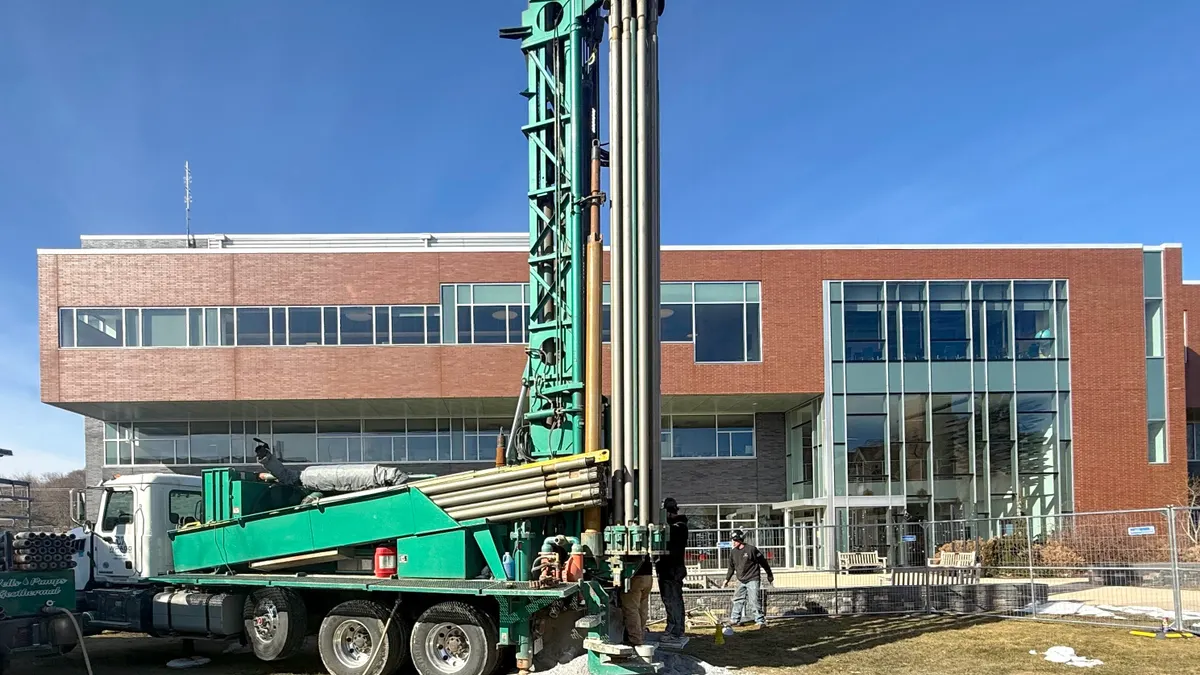Dive Brief:
- The Canada Infrastructure Bank is investing $100 million for GDI Integrated Facility Services to provide deep energy retrofits to aging buildings across Canada.
- The loan will enable GDI subsidiaries Ainsworth and Énergère to provide turnkey design and building retrofit services, according to a July 2 news release. These services will include initial energy audits, energy modeling, system design, installation, commissioning and measurement alongside ongoing energy management, data analytics and energy optimization.
- Each building is expected to reduce greenhouse gas emissions by a minimum of 30% each year, for an average of 37% across the project portfolio, with an estimated 44,000 tons of greenhouse gas emissions reduced each year. These projects are also expected to support roughly 500 jobs in the trades sector, CIB said.
Dive Insight:
GDI has formed a special purpose vehicle to finance the capital costs of the retrofits, per the release. The SPV will include the CIB’s investment, with the remainder funded through an equity investment from GDI and third parties. The energy projects will be sourced by GDI’s wholly owned subsidiary Ainsworth, and its subsidiary, Énergère.
While each project carried out by the SPV will vary in scale and approach, Ainsworth’s turnkey energy services will provide clients with deep energy retrofit solutions that can dramatically reduce carbon emissions, per the release. These carbon reduction measures include fuel switching, HVAC upgrades, transitioning to clean and renewable power sources like solar generation, electric vehicle charging and energy storage.
“This partnership will enable GDI to accelerate the implementation of turnkey retrofit solutions designed to improve the efficiency of our country's inventory of aging buildings which is key to making communities more resilient and sustainable,” CIB CEO Ehren Cory said in a statement.
The investment is part of CIB’s Building Retrofits Initiative, which has committed over $1.2 billion toward financing sustainable retrofits. With buildings accounting for approximately 18% of Canada’s total GHG emissions, the CIB’s investments are intended to prioritize and accelerate building retrofits that can help the country meet its climate change goals, according to the release.
“No one can reduce the environmental impact of aging buildings across the country on their own. This requires the public and private sectors coming together. We are proud to announce this agreement today that is a shining example of such a partnership, and is one that will help Canada reach net-zero emissions by 2050,” Sean Fraser, Canada’s minister of housing, infrastructure and communities, said in the release.













